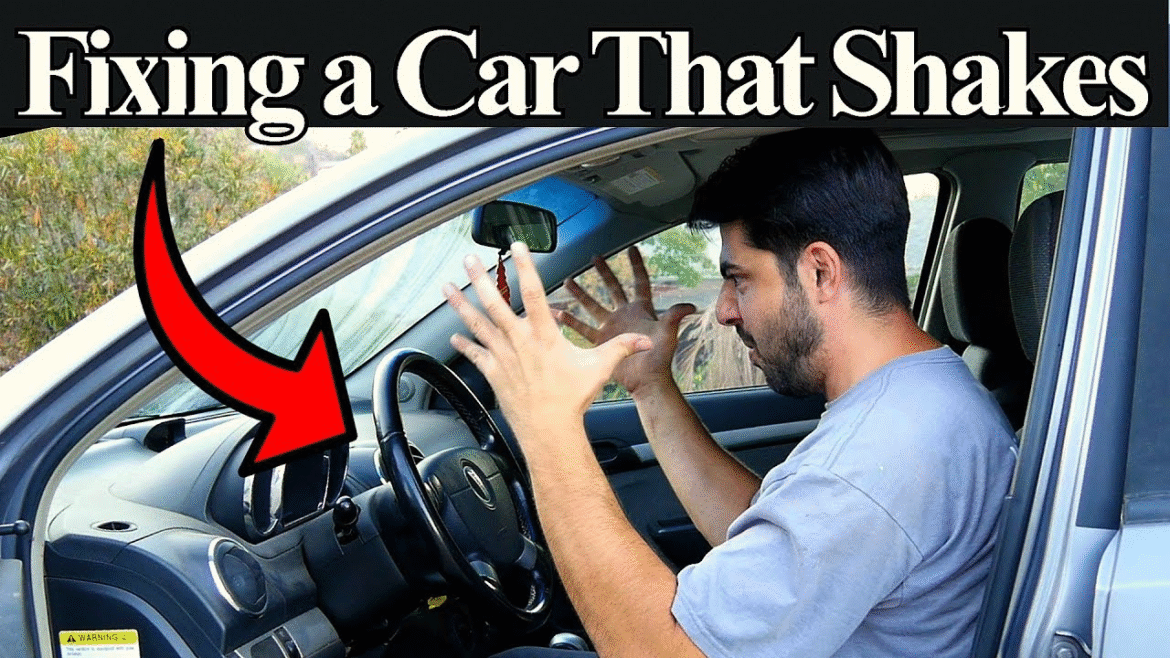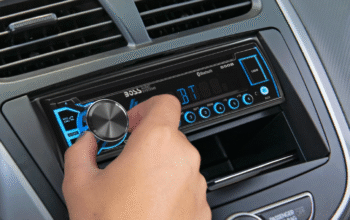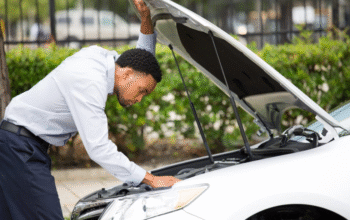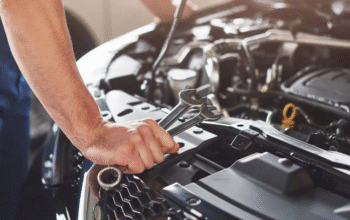Is your car shaking when you’re driving down the road? i know this is frustrating. Don’t panic — it happens to a lot of people. Car shaking can feel like small vibrations or like your whole car is bouncing around. It may happen at low speeds, high speeds, or when you brake or turn.
Most of the time, shaking is caused by a problem that’s easy to fix. You just need to figure out where it’s coming from. This article will help you understand the most common causes of a shaking car — and the simple steps you can take to fix them.
1. Tires Are Not Balanced

If your car shakes when you’re driving at speeds over 50 or 60 miles per hour, your tires might be unbalanced. This means that one part of the tire is heavier than the other.
It’s like when you spin a washing machine with clothes on one side — it wobbles.
Easy Fix: Go to a tire shop and ask for “tire balancing.” They’ll use a machine to spin your tires and place small weights to even them out. It usually takes less than an hour and doesn’t cost too much.
2. Wheels Are Out of Alignment

Do you notice that your car pulls to one side or the steering feels off while driving? That could mean your wheels are out of alignment.
This usually happens after hitting a pothole or curb.
Easy Fix: Ask a mechanic for a “wheel alignment.” They’ll adjust the angle of your wheels so everything is straight and balanced again. It helps your car drive smoother and your tires last longer.
3. Tire Damage

Check your tires carefully. Look for bald spots, bubbles, or uneven wear. Damaged tires can make your car shake, especially if one tire has more wear than the others.
Easy Fix: If your tire is worn out or has a bubble, you’ll need to replace it. Don’t wait — a bad tire can blow out while driving. Also, remember to rotate your tires every 5,000–7,000 miles to keep them wearing evenly.
4. Warped Brake Rotors
Does your car shake only when you press the brake pedal? That’s often a sign of warped brake rotors. These are the round metal discs that your brake pads squeeze to slow you down.
If they get too hot, they can bend or wrp. This causes uneven contact with the brake pads and leads to shaking.
Easy Fix: Go to a mechanic. They’ll check if the rotors can be resurfaced (smoothed down) or need replacing. It’s best to fix this early before it gets worse or affects your stopping power.
5. Worn Brake Pads or Stuck Calipers
Brake pads wear out over time. If one side wears faster than the other, you might feel vibrations while braking. Also, if your brake caliper is stuck, one wheel might brake harder than the others.
Easy Fix: Have your brake pads checked. If they’re thin (less than 3mm), it’s time to replace them. A stuck caliper will need to be cleaned or replaced by a mechanic. Keeping your brakes in good shape is super important for your safety.
6. Suspension Problems
The suspension system helps keep your ride smooth. It includes parts like shocks, struts, bushings, and ball joints. If any of these are damaged or worn out, your car can shake — especially when turning or going over bumps.
You may also hear clunking or knocking sounds.
Easy Fix: Take your car to a shop for a suspension inspection. If a part is loose or broken, they can replace it. Fixing this early will make your car feel safer and more stable.
7. Engine Issues
If your car shakes even when you’re stopped at a red light or parked, it might be an engine problem. The engine might not be running smoothly. This is called a “misfire.”
It could be caused by bad spark plugs, dirty fuel injectors, a clogged air filter, or worn engine mounts.
Easy Fix: You can change spark plugs and air filters yourself if you’re handy, or have a mechanic do it. You can also try adding fuel injector cleaner to your gas tank. If the shaking continues, ask a mechanic to do a full engine checkup.
8. Bent Wheel Rim
If you hit a big pothole or curb, your wheel rim might bend. A bent rim won’t spin properly, which can make your car shake — especially at high speeds.
Easy Fix: Look at your wheels closely or ask a tire shop to inspect them. Some bent rims can be fixed, while others may need to be replaced. Driving with a bent rim can ruin your tires, so don’t ignore it.
9. Bad CV Joint or Axle
If you detect shakes in your steering wheel while accelerating or turning, you may have a worn CV joint or axle. They both connect your wheels to the engine and allow for smooth movement.
Over time, the joints can wear down or lose lubrication.
Easy Fix: Have a mechanic check the axles and CV joints. If they’re damaged, they’ll need to be replaced. It’s not something you want to leave unfixed because it could fail completely while driving.
10. Loose Lug Nuts or Wheel Issues
Sometimes the problem is super simple — loose lug nuts. These are the bolts that hold your wheel onto the car. If they’re not tight, the wheel can wobble and shake.
Easy Fix: Use a lug wrench to check and tighten each nut. Be careful not to overtighten. If you’re not sure, stop by a tire shop — they’ll check it for free or a very small fee.
11. Dirty or Worn Spark Plugs
Spark plugs are tiny components that ignite the fuel in your engine. When spark plugs are dirty or worn down, it can cause the engine to misfire. This can cause the car to shake, especially at startup or idle speeds.
Easy Fix: Replace the spark plugs. Most cars need new spak plugs every 30,000 to 100,000 miles, depending on the type. You can do this at home if you have a basic toolset, or ask a mechanic.
12. Low Transmission Fluid
Your transmission helps your car change gears. If the fluid is low or dirty, your car may shake when shifting or going uphill.
Easy Fix: Check your transmission fluid level. If it’s low, add more using the dipstick (check your car’s manual for the right type). If it’s dark or smells burnt, it may need to be flushed and replaced by a pro.
Final Tips to Stop Your Car from Shaking
- Do regular maintenance like oil changes, tire rotations, and brake checks.
- Avoid potholes and rough roads when possible to protect your suspension and wheels.
- Listen for sounds — squeaks, knocks, or grinding noises can be early warnings.
- Fix problems early — small issues can turn into big repairs if ignored.
- Don’t drive too long with a shaking car. It’s uncomfortable, unsafe, and can damage other parts.
When to See a Mechanic
If your car keeps shaking and you can’t figure out why, or if you notice smoke, warning lights, or loud noises — it’s time to see a mechanic. Shaking is not just annoying — it’s a sign your car needs attention.
Catching the problem early can save you money and keep you safe on the road.
People also ask
How do I fix my car from shaking when I drive?
Check and fix your tires, brakes, suspension, or engine. A mechanic can help if you’re unsure.
What’s causing my car to shake when driving?
It’s usually due to bad tires, wheel alignment, brake issues, or engine problems.
Why does my car drive so shaky?
Worn tires, loose parts, or engine trouble can make your car feel shaky.
Why does my car shake at top speed?
Your tires may be unbalanced or your wheels misaligned.




